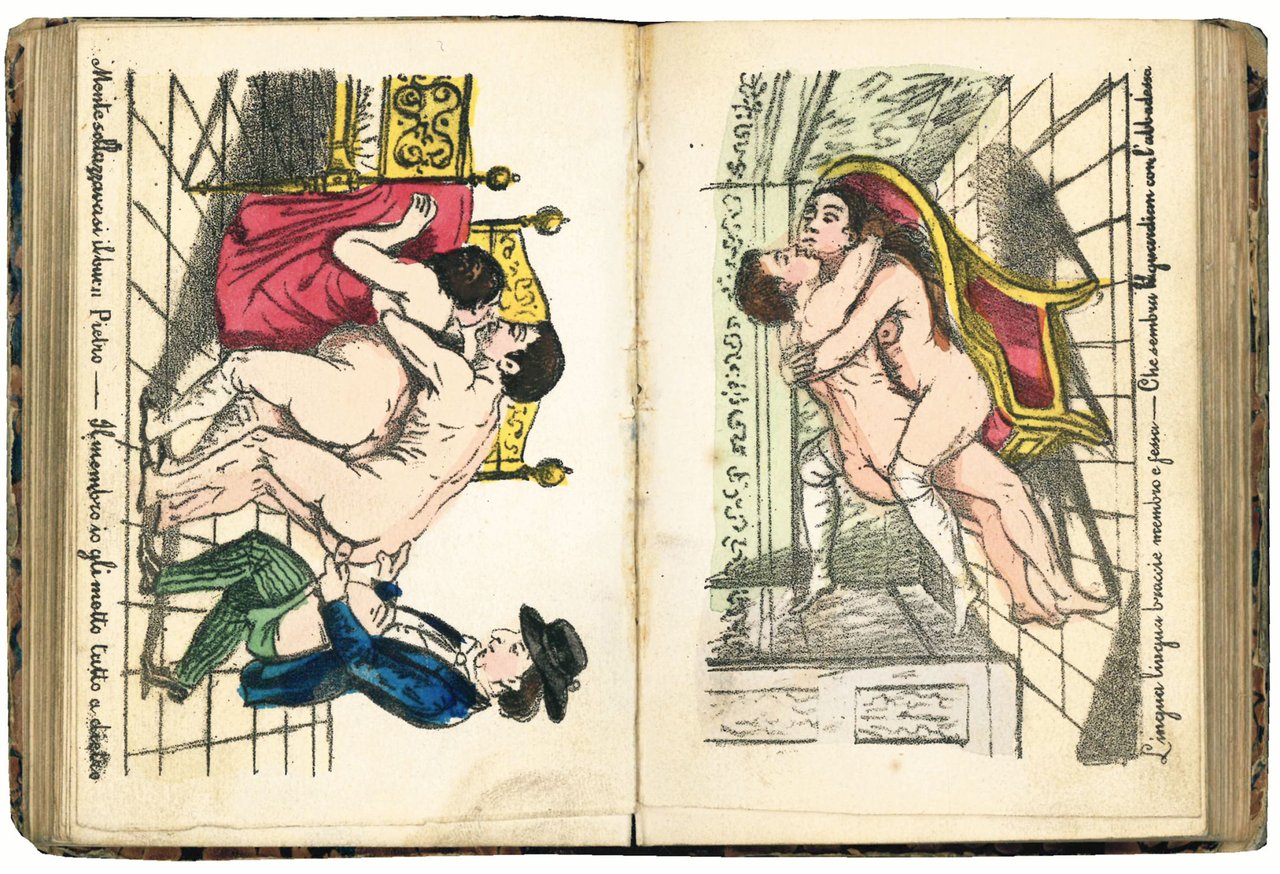
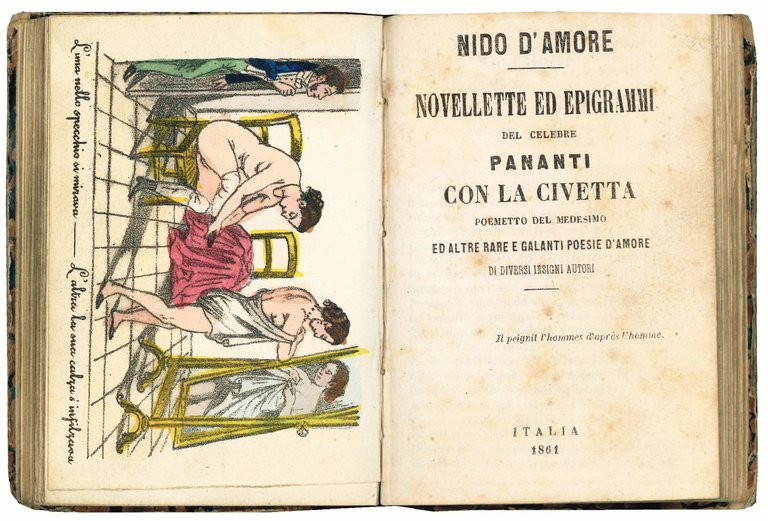
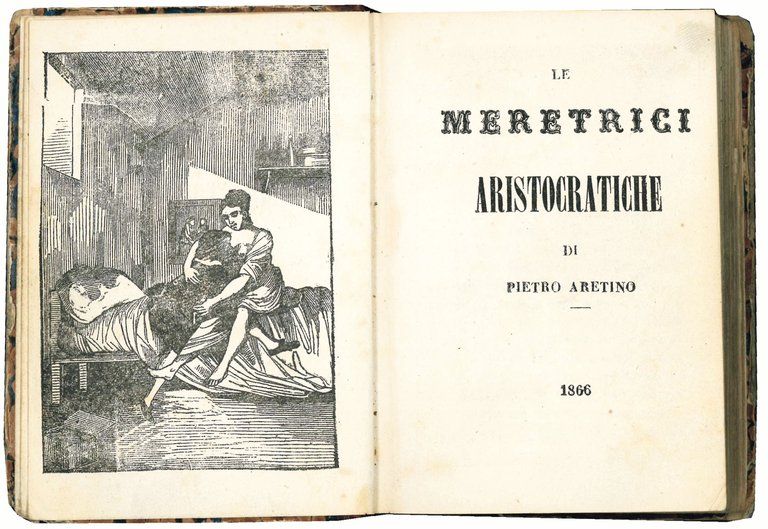
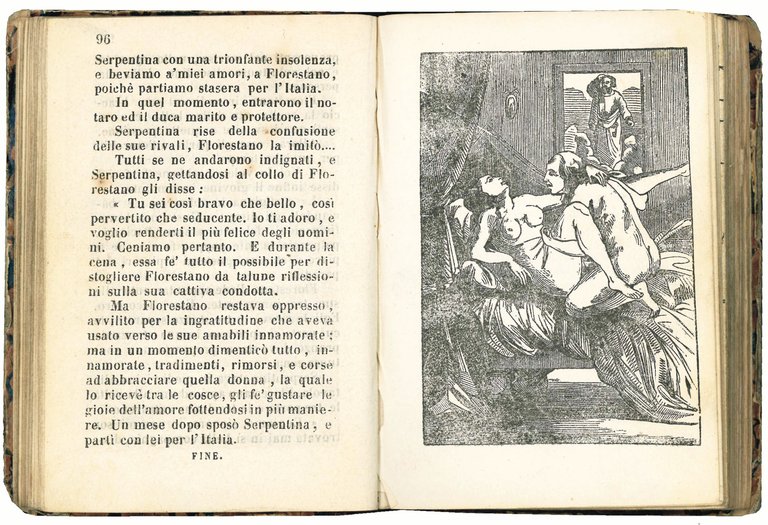
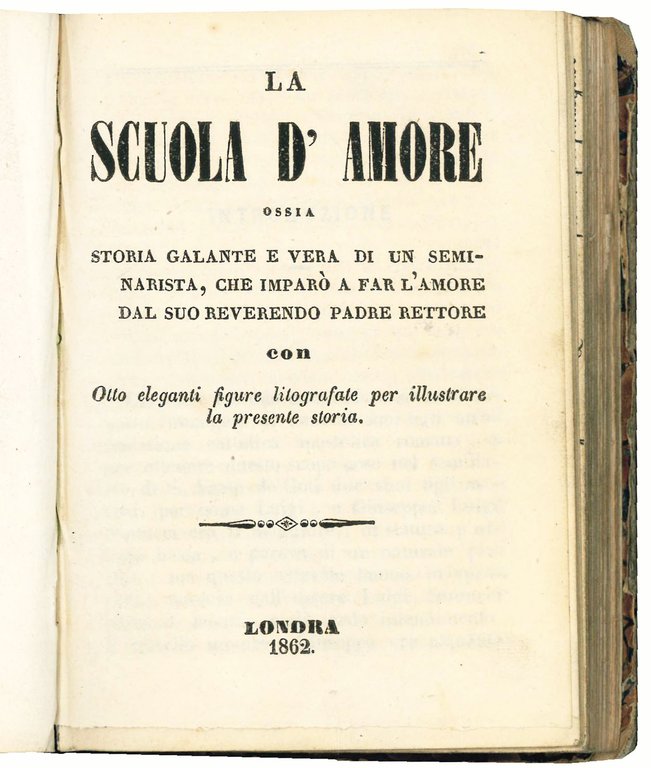
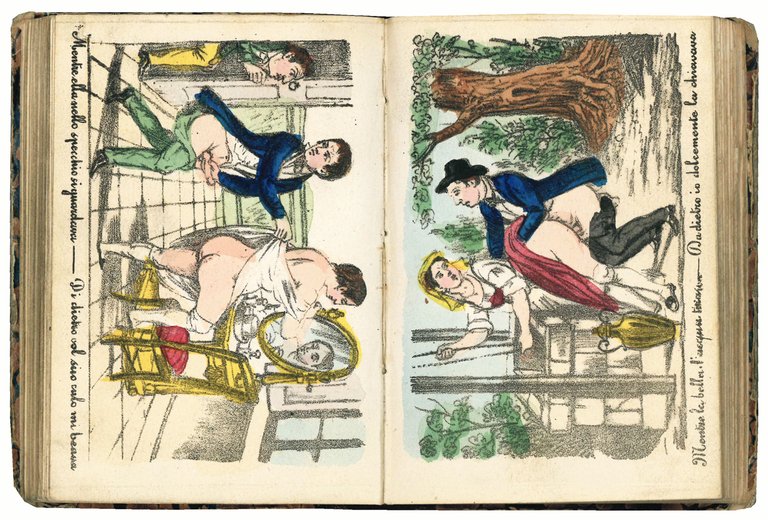
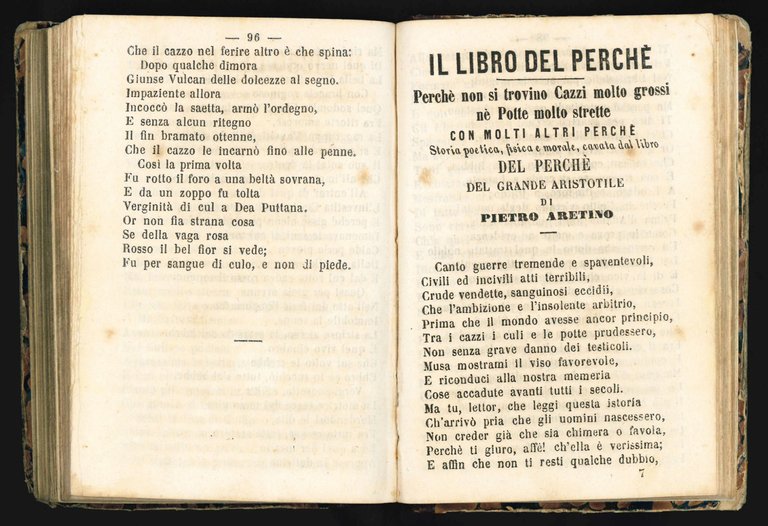
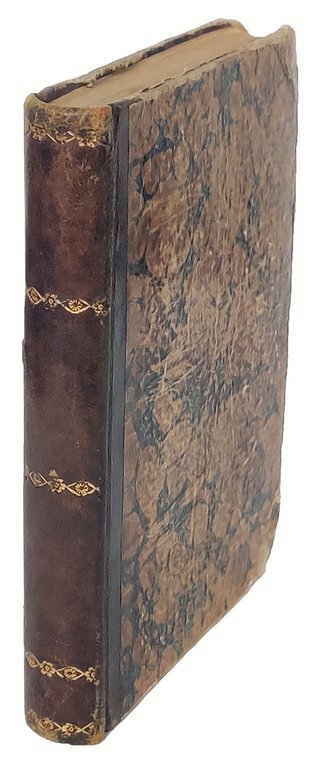
Livres anciens et modernes
NINETEENTH-CENTURY ITALIAN PORNOGRAPHIC MISCELLANY
Le Meretrici Aristocratiche di Pietro Aretino. N.pl., n.pr, 1866. [Bound with:] La scuola d'amore ossia storia galante e vera di un seminarista, che imparò a far l'amore dal suo reverendo Padre Rettore con otto eleganti figure litografate perillustrare la presente storia. Londra, 1862. [Bound with:] PANANTI, Filippo (1766-1837) et al. Nido d'amore. Novellette ed epigrammi del celebre Pananti con la Civetta, poemetto del medesimo ed altre rare e galanti poesie d'amore di diversi insigni autori. Italia, 1861.
980,00 €
Govi Libreria Antiquaria
(Modena, Italie)
Les frais d'expédition corrects sont calculés une fois que l'adresse de livraison a été indiquée lors de la création de la commande. Un ou plusieurs modes de livraison sont disponibles à la discrétion du vendeur : standard, express, economy, in store pick-up.
Conditions d'expédition de la Librairie:
Pour les articles dont le prix est supérieur à 300 euros, il est possible de demander un plan de paiement échelonné à Maremagnum. Le paiement peut être effectué avec Carta del Docente, Carta della cultura giovani e del merito, Public Administration.
Les délais de livraison sont estimés en fonction du temps d'expédition de la librairie et de la livraison par le transporteur. En cas de retenue douanière, des retards de livraison peuvent survenir. Les frais de douane éventuels sont à la charge du destinataire.
Pour plus d'informationsMode de Paiement
- PayPal
- Carte bancaire
- Virement bancaire
-
-
Découvrez comment utiliser
votre Carta del Docente -
Découvrez comment utiliser
votre Carta della cultura giovani e del merito
Détails
Description
Miscellany of three very rare illustrated Italian pornographic works, mostly by anonymous authors. Like all nineteenth-century Italian galant works, they are of great rarity because of the strong censorship of the time. No copies of the first and second works are currently recorded in the Italian Union Catalogue in any edition, but a copy of second work is recorded at the BNF (cf. L'Enfer de la Bibliothèque Nationale de France, notice no. FRBNF33598979; see also OCLC, 1334504314). No copy either is recorded in the Italian Union Catalogue of the third work, which nevertheless contains works by Filippo Pananti that had already appeared in earlier editions, also of great rarity (cf. A.R.Zanobi-G. Valenti, eds., L'Enfer della Braidense: catalogo dei libri Fondo riservata erotica, Milan, 2007, no. 642). The last work contains pornographic compositions by several authors, including a work entitled Il Libro del Perchè. Perchè non si trovino Cazzi molto grossi né Potte molto strette con molti altri perchè, Storia Poetica, fisica e morale, cavata dal libro del Perchè del grande Aristotele di Pietro Aretino.
Filippo Pananti was a poet and writer from Florence. A law graduate from the University of Pisa, because of his liberal ideas he fled Italy in 1803, taking refuge first in England, then in France. He lived teaching mathematics and letters. In London he also became the director of the Italian Theatre. On a return voyage to Italy he was captured by North African pirates, enslaved and taken to Algiers. Pananti made detailed observations of his time in captivity, which he published (Avventure e osservationi sopra le coste di Barberia, 1817) after his release through the intervention of the British Consul. His best-known work is the Poeta di Teatro, a humorous poem of an autobiographical nature, published in London in 1808 and inspired by Berni and L. Sterne.
“Nel 1798, date le difficoltà economiche seguite alla morte dello zio, tornò a Firenze, contando su una discreta fama letteraria, benché non avesse ancora pubblicato nulla. Esordì di lì a poco con una raccolta di Epigrammi e novellette (Milano s.d., ma 1799) e due poemetti La civetta (ibid. 1799) e Il paretaio (ibid. 1803), mostrando fin da queste prime prove l'attitudine burlesca e narrativa, che lo ha fatto considerare il predecessore di Giuseppe Giusti e di Antonio Guadagnoli. La produzione epigrammatica, nonostante le accuse di scarsa originalità, fu a lui tanto congeniale che vi si dedicò per tutta la vita, mettendo assieme centinaia di componimenti prevalentemente ameni e arguti, apparsi in numerose edizioni, alcune delle quali messe all'Indice per la presenza di oscenità” (F. Brancaleoni, Pananti, Filippo, in: “Dizionario Biografico degli Italiani”, vol. 80, Rome, 2014, s.v.).

